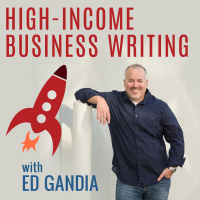Sinopsis
Fifteen minutes long, because you're in a hurry, and we're not that smart.
Episodios
-
13.13: Character Voice
01/04/2018 Duración: 23minYour Hosts: Brandon, Mary, Dan, and Howard Character voice, the flow, order, and feel of words that is unique to a particular character, is extremely useful in defining characters for the reader. In this episode we discuss our tools for shaping character voices, and the ways in which we make sure each one unique. Liner Notes: We talked about authorial voice in episode 12.10, and about 1st-person Voice in 12.2. Credits: This episode was recorded by Dan Thompson, and mastered by Alex Jackson
-
13.12: Q&A on Heroes, Villains, and Main Characters
25/03/2018 Duración: 17minYour Cast: Brandon, Valynne, Dan, Howard You had questions about heroes, villains, and main characters. We have answers! Here are the questions: How do you make planned power increases not seem like an ass-pull¹? What do you do when your villain is more interesting/engaging than your hero? How do you know when a character is unnecessary and needs to be removed from the story, or killed off in the story? What tricks do you use when you want the reader to mistakenly believe a character is a hero, rather than a villain? Which is more fun for you: creating a villain, or creating a hero? How many side characters can you reasonably juggle in a novel? What are the drawbacks to making your villain a POV character? If your villain doesn't show up until late in the story, how do you make their eventual appearance seem justified? How do you get readers to like a character who is a jerk? Liner Footnotes ¹ We hadn't seen "ass-pull," the a nouning² of the idiom "pull it out of your
-
13.11: Writing Secondary Characters, with Charlaine Harris
18/03/2018 Duración: 17minYour Hosts: Brandon, Mary, Dan, and Howard, with special guest Charlaine Harris Charlaine Harris joined us in front of a live audience at the GenCon Writers Symposium to talk with us about secondary characters—why they're so important, why they can be difficult to write well, and how she brings her secondary characters to life without giving them a POV.
-
13.10: Handling a Large Cast
11/03/2018 Duración: 23minYour Hosts: Brandon, Mary, Amal, and Maurice What are our favorite techniques for managing large casts of characters, and how do our processes differ from when we're writing small casts? What does "large" and "small" mean for us? Liner Notes: No, Howard was not in the room. Yes, despite his absence, he was wearing both trousers and pants while he ventured into the wilds to obtain Maurice's character sheet. Credits: This episode was recorded by Andrew Twiss, and mastered by Alex Jackson, both of whom have more points in "perception" than most people have points.
-
13.9: Quick Characterization
04/03/2018 Duración: 18minYour Hosts: Brandon, Mary, Dan, and Howard How do you go about defining a character for your readers when you don't have many words to devote to the project? What are the tricks for quickly establishing someone's individuality within your story? Credits: This episode was recorded by Dan Thompson, and mastered by Alex Jackson.
-
13.8: Making Characters Distinctive
25/02/2018 Duración: 21minYour Hosts: Brandon, Valynne, Dan, and Howard What do we do to make our characters distinctive? Often we categorize the distinctions as flaws or quirks, and in this discussion we use those as our starting points. Credits: This episode was recorded by Dan Thompson, and mastered by Alex Jackson.
-
13.7: What Writers Get Wrong, with Lou Perry
18/02/2018 Duración: 14minYour Hosts: Brandon, Mary, Dan, and Howard Lou Perry joined us in front of a live audience at GenCon Indy to talk about law and courtrooms, and what writers get wrong when setting their stories amid legal procedures.
-
13.6: External Conflicts for Characters
11/02/2018 Duración: 20minYour Hosts: Brandon, Mary, Amal, and Maurice An external conflict is a story driver that originates outside the protagonist. In this episode a large part of what we'll focus on is person-vs-environment as opposed to person-vs-person. PvE rather than PvP, if you will. Credits: This episode was recorded by Andrew Twiss, and mastered by Alex Jackson, both of whom understand that environmental noise is a key external conflict driving their narratives.
-
13.5: Villain, Antagonist, Obstacle
04/02/2018 Duración: 18minYour Hosts: Brandon, Mary, Dan, and Howard What's the difference between villains and antagonists? How is an obstacle character different from those other two? How are they alike? And most importantly, how can we use this information to write effective opposition to our heroes, protagonists, and main characters? Credits: This episode was recorded by Dan Thompson, and mastered by Alex Jackson.
-
13.4: Protagonists Who Aren’t Sympathetic
28/01/2018 Duración: 20minYour Hosts: Brandon, Valynne, Dan, and Howard This week we're joined by Valynne Maetani, who'll be one of our hosts all year. We're discussing protagonists who, per writer intent, do not engender audience sympathy. Credits: This episode was recorded by Dan Thompson, and mastered by Alex Jackson.
-
13.3: What Writers Get Wrong, with Aliette de Bodard
21/01/2018 Duración: 22minYour Hosts: Dan, Mary, Aliette, and Howard This year's third-week episodes will all follow a common theme: "what writers get wrong." Each of these episodes will feature an expert guest who will help us understand what writers get wrong about something in which they have expertise. Aliette de Bodard will be co-hosting several of these week-three episodes, but this week her role is "subject matter expert." She has several fields of expertise, and among the hats she expertly wears which writers often fail to correctly describe is a hat labeled "motherhood" (note: not an actual hat.) Credits: This episode was recorded at WXR 2017 in the Baltic Sea by Bert Grimm, and mastered on dry land by Alex Jackson
-
13.2: Writing Active Characters
14/01/2018 Duración: 19minYour Hosts: Brandon, Mary, Amal, and Maurice This week we welcome Amal El-Mohtar and Maurice Broaddus to the Writing Excuses cast for a discussion of active characters. We cover characters who move stories forward, who make decisions that influence plot-critical events, and whose actions draw the reader into the book. Liner Notes: you'll be hearing from Amal and Maurice during the second week of each month of 2018. And if Maurice sounds familiar, he joined us at GenCon for episode 7.40 back in 2012. Credits: This episode was recorded by Andrew Twiss, and mastered by Alex Jackson, and despite the fact that both Andrew and Alex are very active characters we never give them any dialog.
-
13.1: Hero, Protagonist, Main Character
07/01/2018 Duración: 17minYour Hosts: Brandon, Mary, Dan, and Howard 2018 is our Year of Character, and we kick it off with a quick exploration of the differences between heroes, protagonists, and main characters. Beginning with addressing the question "wait, aren't they all the same person?" Because that's the elephant in the room. Or maybe it's three elephants. Or two. Sometimes there's no elephant, and if you look carefully you can see an elephant-shaped hole, which is probably more like a negative number of elephants. Liner Notes: We referenced The Hollywood Formula, which was introduced to us by Lou Anders in Episode 6.18. We also keep saying "protag" as a verb, which to us means "doing proactive protagonist things." Howard may have made up this word, but its true provenance has been lost to the mists of anxiety of influence. Credits: This episode was recorded by Dan Thompson, and mastered by Alex Jackson. For audio quality purposes the studio contained zero elephants.
-
12.53: Writing Excuses True Confessions
31/12/2017 Duración: 29minIt's the end of 2017, so let's talk about the things that we've tried to make work, and failed at. Not things that we tried before arriving at career-level measures of success—things that we've folded, spindled, and/or mutilated since then. There were a lot of them! This episode runs close to thirty minutes long...
-
12.52: Cross-Genres as Gateways
24/12/2017 Duración: 17minYour Hosts: Brandon, Piper, Howard, and Dan What are the books which have drawn us from the bookshelf genres where you're the most comfortable into bookshelves you haven't read from? What can we learn about our own writing by reading these gateway books? How can we set about writing them ourselves? Credits: this episode was recorded in Cosmere House Studios by Dan Dan the Audioman Thompson, and mastered at the intersection of Cowboys and the Great Lakes by Alex Jackson
-
12.51: Constructed Languages, with Dirk Elzinga
17/12/2017 Duración: 18minYour Hosts: Howard, Mary, Dan, with guest host Beth Meacham Dirk Elzinga, an associate professor of linguistics, joined us live at LTUE to talk about constructed languages, and how we, as writers, might go about constructing them for our work. Liner Notes: The big stack of notes from Dirk required its own page. Below are links to specific tools mentioned during the episode. Duolingo Everchanging Book of Names Credits: This episode was recorded live at LTUE by Dan Dan the Audioman Thompson and mastered beneath a pyramid of stone tablet encyclopedias by Alex Jackson.
-
12.50: Form and Function
10/12/2017 Duración: 23minYour Hosts: Brandon, Mary, Mary Anne, and Wesley How does the shape of your physical medium change the art you're making? What are the tools that affect our storytelling, and what are those effects? Credits: This episode was recorded in Chicago by Andrew Twiss, and mastered by Alex Jackson
-
12.49: Non-linear Narratives
03/12/2017 Duración: 17minWe begin the final month of our year on structure with a discussion of non-linear structures. These include flashbacks, POVs that are out of chronological order, and a host of other storytelling techniques. Credits: this episode was recorded in Cosmere House Studios by Dan Dan the Audioman Thompson, and mastered by Alex Jackson
-
12.48: Q&A on Novels and Series, with Brian McClellan
26/11/2017 Duración: 25minBrian McClellan joined us to field questions about writing novels and series. Here are the questions: How do you write an ending that is open for sequels, but isn't a cliffhanger? Is it a good idea to take a large novel, and release it instead as serial novellas? Can you debut with a series, or should you establish yourself with standalone novels first? How do you keep readers coming back for each new novel when there's a long time between them? Should you have more than just one book done before querying agents? What do you do if your novel turns out to be too short to be a novel? Is it possible to write a series as a discovery writer? How do you foreshadow big things that are a long way out?
-
12.47: Screenwriting and the Writers Room, with JD Payne
19/11/2017 Duración: 19minScreenwriter JD Payne joined us before a live audience at LTUE to talk about writing for the screen, specifically regarding doing this work with others in a room full of writers.






